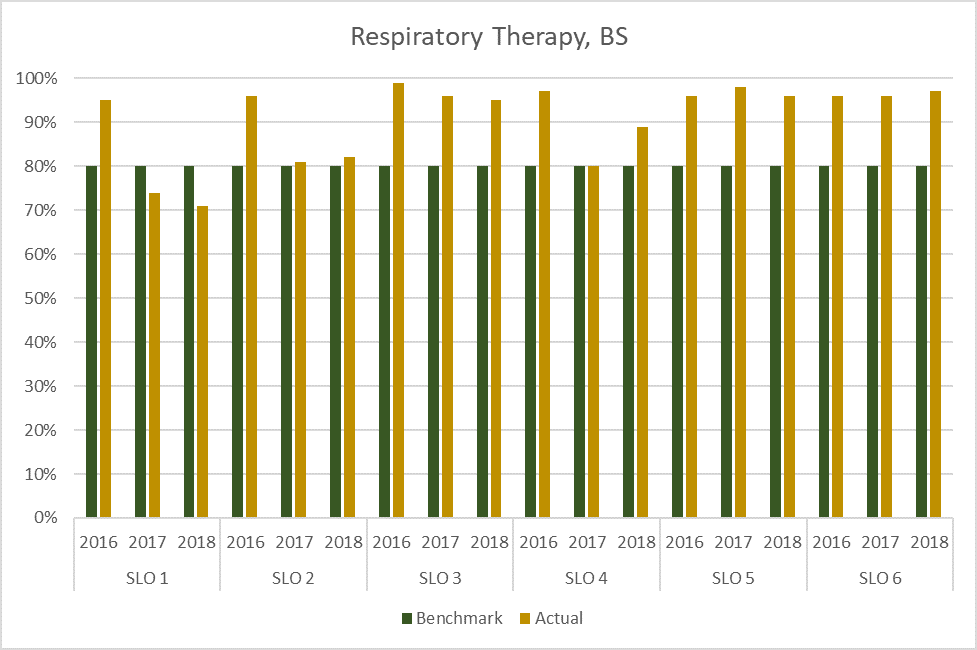Respiratory Therapy, BS

Student Learning Outcome Statements:
- Students will discuss the current professional and clinical roles in respiratory therapy as well as identify potential expanded roles for professionals by examining professional behavior, reviewing the history of respiratory therapy, examining the quality
- Students will apply knowledge of neonatal, pediatric, and adult critical care pathophysiology to interpret pertinent clinical information to select appropriate therapeutic intervention.
- Students will communicate effectively incorporating professional behavior, utilizing appropriate terminology, and employing an evidence-based approach in both written and oral communication.
- Students will incorporate an evidence-based approach to patient care by identifying and accessing appropriate literature and assessing and interpreting relevant medical research/trials to apply the findings to clinical practice, patient management, patient education, and/or research to further the knowledge base of the respiratory therapy profession.
- Students will apply knowledge of the field of respiratory therapy and address current or future needs related to clinical practice; administration; education; and/or research associated with the respiratory therapy profession, reflecting on the role of professional leadership in respiratory therapy, healthcare, and the community, through the development of an original project or research proposal.
- Students will apply professional communication and evidence-based problem-solving skills/strategies to working with inter-professional teams, incorporating all aspects necessary to deliver effective, patient-centered care.
Assessment Plans:
- Student learning outcomes are assessed each semester and reports are reviewed by the faculty and the advisory committee annually.
Instruments/Artifacts:
- Papers, multiple choice examinations, oral presentations, and student satisfaction surveys.
Acceptable Target:
- 80% of students will meet or exceed expectations
Use of Learning Evidence:
- To ensure mastery of citation format & proper progression of writing skills throughout the program, the BSRT faculty instituted a standardized program rubric for grading assignments across all sections.
- BSRT program faculty chose to incorporate the critical thinking skills assessment into the inter-professional educational component of the program and have revised their learning outcome to better assess this skill.
- The BSRT course instructor has reevaluated the layout, content, assignments and assessments in their course upcoming to better meet the needs of our students and hopefully allow for more successful SLO outcomes in the coming academic year.